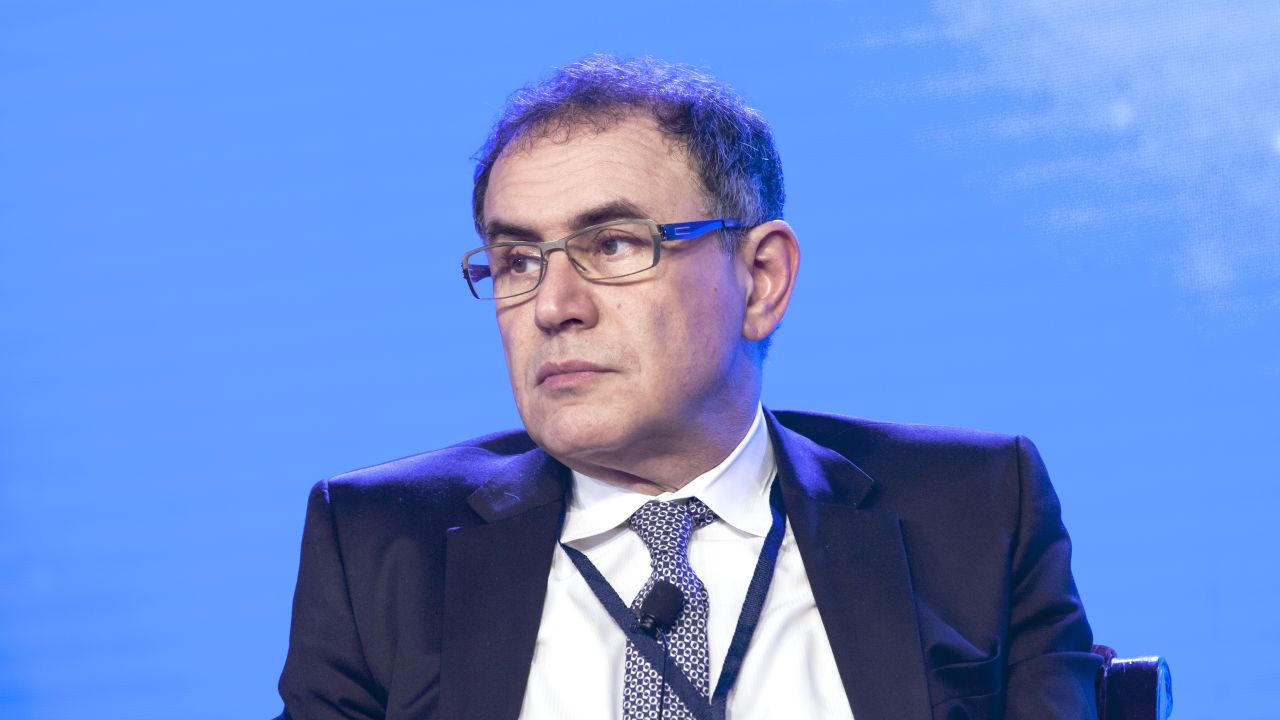Editor’s Note: Desmond Lachman is a senior fellow at the American Enterprise Institute. He was a deputy director in the International Monetary Fund’s Policy Development and Review Department and the chief emerging market economic strategist at Salomon Smith Barney. The opinions expressed in this commentary are his own. View more opinion on CNN.
Although we know that monetary policy takes a long time to have its full effect on the economy, the Federal Reserve’s rate hikes are already causing considerable economic damage and financial market stress both at home and abroad.

We have to hope that when the central bank meets this week, it will start to dial back its unusually rapid pace of monetary policy tightening. If it doesn’t, we’ll have to brace for an unnecessarily painful recession.
After having been fast asleep at the wheel last year when inflation gained momentum, this year the Fed has slammed on the monetary policy brakes in a way we have not seen since the 1980s.
Not only has the Fed raised interest rates three times in unusually large 75 basis point steps, it has also started withdrawing $95 billion a month in market liquidity by not rolling over its bond holdings when they mature. That has put significant downward pressure on the equity and bond markets.
Among the more disturbing economic changes resulting from the Fed’s tightening has been the increased signs of a serious recession developing in the housing sector. Mortgage rates, which are closely linked to the Fed’s interest rate hikes, have topped 7%, more than double what they were a year ago.
In response to the surge in mortgage rates, housing has become ever less affordable and mortgage applications have plunged. Meanwhile, builder confidence has plumbed new lows, housing starts have been cut back sharply, and home prices have started to decline in around 50 US cities.
The housing market distress, coupled with consumer confidence being sapped by high inflation and high interest rates, has contributed to the virtual stagnation in the overall economy this year despite a modest economic bounce in the third quarter.
That stagnation has led to an abrupt decline in job openings, which could fall further if the economy enters a recession next year. A cooling labor market is what the Fed wants, as it would reduce demand and therefore inflation, but it could come at the cost of an unnecessarily high unemployment rate.
Another disturbing consequence of aggressive monetary policy tightening has been the substantial destruction of household financial wealth. Since the start of the year, the S&P 500 has lost some 20% of its value, bond prices have declined by 15%, and bitcoin has lost around 60% of its value. It would only seem to be a matter of time before we see a marked fall in housing prices.
The Fed’s hawkish policy stance is occurring in the context of a very troubled world economy that has also been plagued by high inflation. Europe appears to be on the cusp of a deep recession as a result of being shut off from Russian natural gas supply. While that supply has largely recovered, the cold winter months could bring additional energy shortages.
China has seen its economic growth fall below its 5.5% target, a result of President Xi Jinping’s zero-Covid policy and the bursting of its property sector bubble. Emerging market economies, including Sri Lanka and Zambia, have defaulted on their debts, and many others are now nearing default as high US interest rates encourage capital repatriation from those countries.
Since the start of the year, the dollar has surged by around 15% as US interest rates have risen. While a stronger dollar might relieve US inflation pressure by cheapening our import costs, it’s the last thing the world economy needs, as a further appreciation of the dollar would add to Europe’s inflation problem by increasing its import costs.
Get our free weekly newsletter
- Sign up for CNN Opinion’s newsletter.
- Join us on Twitter and Facebook
The last thing that the emerging market economies need is a further rise in US interest rates, which could push more of these countries into default by increasing their debt burdens. And the last thing that Americans need is a very weak world economy that could unsettle already vulnerable financial markets.
In the runup to this week’s Fed policy meeting, a number of Fed governors have indicated the need for a serious discussion as to the future pace of interest rate increases. We have to hope that the Fed takes this occasion to signal that it is planning to dial down the pace of those increases. If not, we should brace ourselves for a hard economic landing both at home and abroad.



















